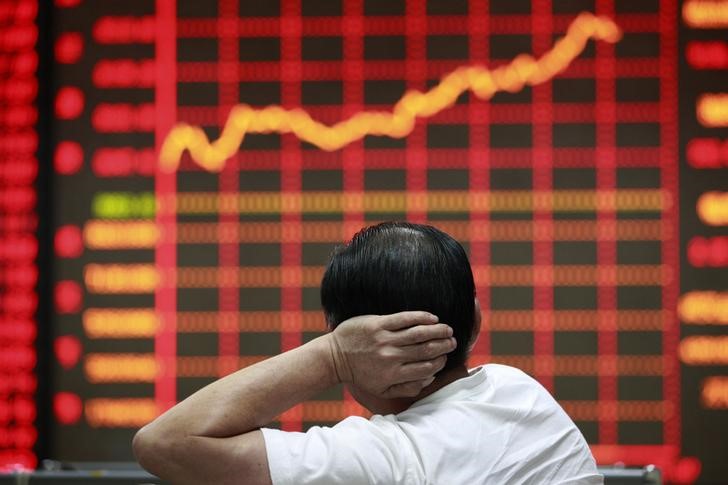(Bloomberg) -- A brutal month for China’s stock traders is ending with a lingering sense of unease.
Investors remain on edge even as the Shanghai Composite Index heads for a weekly gain, following a five-week losing streak that turned it into the world’s worst-performing major benchmark. It’s down 5.6% in May, with foreigners fleeing at a record pace and mainland investors reluctant to buy the dip. The correction was so unexpected, it triggered an unprecedented rush to buy the scarce hedging tools available to onshore stock investors.
While souring trade relations ground China’s bull market to a painful halt this month, stocks are now meandering through their longest streak of calm since February. But investors will have no rest in June, with a key meeting between China’s President Xi Jinping and his U.S. counterpart Donald Trump to watch out for.
Any indication of how China’s economy is coping will also be crucial. The manufacturing purchasing managers’ index for May dropped to 49.4, according to data released by the National Bureau of Statistics, worse than the 49.9 forecast in a Bloomberg survey of economists.
“Short-term noises can still overwhelm even the staunchest long-term investors – especially in a market where fund managers are measured and ranked daily,” Bocom International Holdings Co. strategist Hao Hong wrote in a note Thursday.
While May is rarely a good month for onshore equities, this one has been its worst since 2011. After passing the bull-market threshold in February, the index is down 11% from last month’s peak. A small consolation: traders in Hong Kong actually fared worse this month, and those in the U.S. didn’t do too well either.
The uncertainties have turned the market quiet: average daily turnover on mainland exchanges sank for a seventh week last week, the longest stretch of declines since at least 2010, according to Bloomberg-compiled data. Volume was just 452 billion yuan ($65 billion) on Thursday, about 38% of the amount traded during this year’s busiest day in March.
Investors in China are scaling back the amount of leverage in the stock market, a sign that risk appetite and buying momentum are deteriorating. They’ve cut margin debt by 63.5 billion yuan from an April high, according to China Securities Finance Corp. data as of Tuesday. Leverage has been a key indicator of sentiment after it fueled China’s boom-and-bust cycle in 2015.
Investors based overseas, who have previously timed their exit successfully, keep dumping yuan-denominated stocks as the currency weakens. They’ve sold a net 53.1 billion yuan of the shares via exchange links with Hong Kong this month, beating April’s record almost three times over. Hangzhou Hikvision Digital Technology Co. -- one of the tech firms targeted by the U.S. for potential blacklisting -- is among the most sold.
